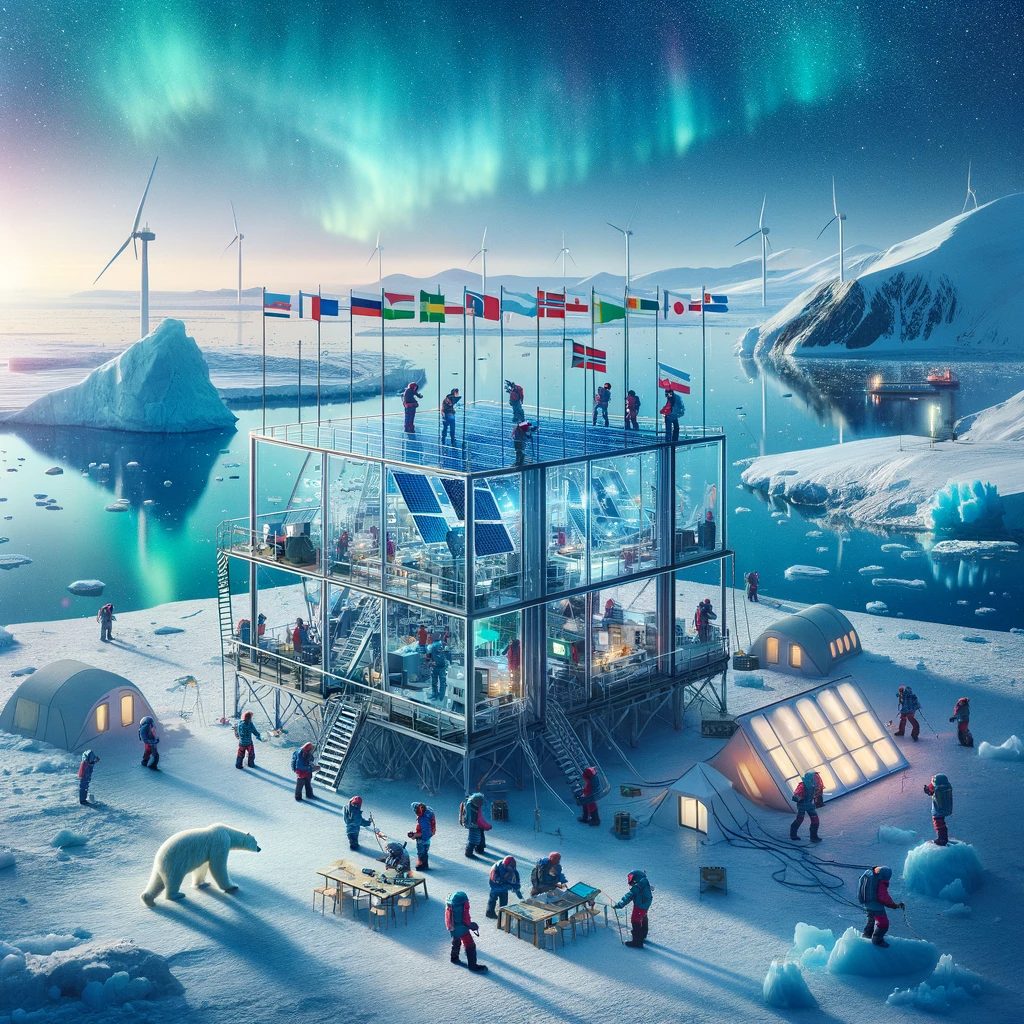
The Arctic, a region of growing geopolitical and economic importance, has aroused global interest, including Brazil. Brazil's adherence to Russian projects in the region, such as the Northern Maritime Trade Route and the Arctic LNG Project 2, could be a significant strategic step, generating unique opportunities and challenges.
The Northern Maritime Trade Route, which connects the Atlantic to the Pacific through Russian Arctic waters, offers a shorter, more cost-effective path to global trade, especially between Asia and Europe. To Brazil, this route could represent a more efficient alternative for the flow of commodities, especially for Asian markets. According to analyzes by international institutions, transit time could be reduced by up to 40%, compared to traditional routes through the Suez Canal.
Arctic LNG 2, one of Russia's largest liquefied natural gas projects, promises to revolutionize the energy market. Brazilian participation could diversify the national energy matrix, in addition to offering a cleaner alternative compared to traditional fossil fuels. Russian expertise in gas exploration under extreme conditions could, inclusive, benefit Brazil in its own offshore exploration projects.
A BPJCS Dome 2023 highlighted the importance of international cooperation in the Arctic, highlighting the need for sustainable development and respect for environmental standards. To Brazil, which has positioned itself as an important player on the global environmental scene, adherence to such projects could reinforce this role, aligning with sustainable practices and respect for Arctic biodiversity.
However, cooperation in the Arctic is not without challenges. Issues such as the volatility of international relations, The environmental impacts of exploiting natural resources and the logistical challenges of operating in such an inhospitable environment must be carefully considered. IT'S
It is essential that Brazil carefully assesses the geopolitical risks, especially in a context of tensions between Russia and other Western powers.
In addition, the environmental issue is crucial. The Arctic is one of the most sensitive regions on the planet, and its ecosystem is vulnerable to climate change and human activities. Brazilian participation in Arctic projects should, therefore, include a firm commitment to sustainable practices and respect for international environmental protection agreements.
Another aspect to be considered is the transfer of technology and knowledge. Collaboration with Russia in the Arctic could open doors for Brazil to acquire advanced exploration and transport technologies in extreme conditions, in addition to strengthening scientific and technological ties between the two countries.
Brazil's adherence to projects in the Arctic can also be a vector of economic diversification. Faced with an uncertain global scenario, the search for new trade routes and energy sources can guarantee the country greater economic resilience and a more robust position in international trade.
In short, Brazil's participation in Russian projects in the Arctic offers a range of strategic opportunities, but also requires careful analysis of environmental challenges, logistical and geopolitical. A balanced approach, that prioritizes sustainability and international cooperation, can ensure that Brazil not only expands its global presence, but also contribute to the responsible management of one of the most crucial regions on the planet.
